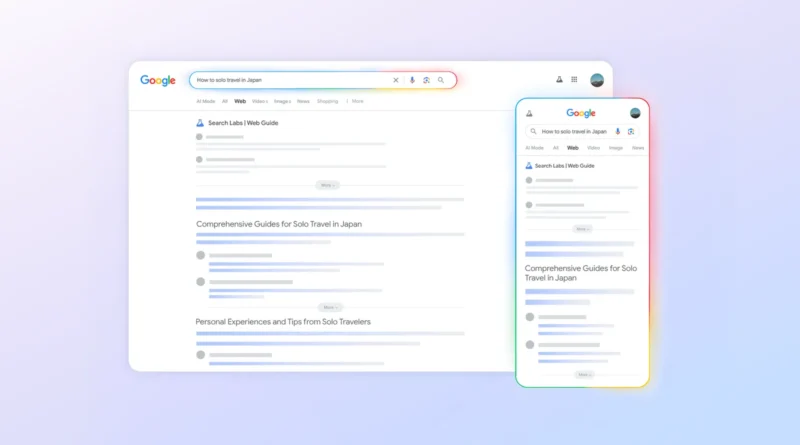Google’s Web Guide: How AI is Revolutionizing the Way We Search
Search engines have come a long way since the early days of simple keyword matching. Today, Google has unveiled something that could fundamentally change how we interact with search results. Their latest experiment, called Web Guide, represents a significant leap forward in making search more intuitive and organized.
What Makes Web Guide Different?
Think about the last time you searched for something complex online. Maybe you were planning a trip, researching a health condition, or trying to understand a complicated topic. Chances are, you found yourself sifting through dozens of links, trying to piece together information from various sources. Web Guide aims to solve this exact problem.
This new AI-powered feature takes your search results and automatically organizes them into meaningful categories. Instead of getting a long list of blue links, you’ll see your results grouped by different aspects of what you’re looking for. It’s like having a research assistant who’s already done the preliminary sorting for you.
The Technology Behind the Magic
Web Guide is powered by Google’s Gemini AI, which brings a deeper understanding to search queries. This isn’t just about matching keywords anymore – the AI actually comprehends what you’re asking and thinks about the different angles you might want to explore.
The system works particularly well with open-ended questions that traditionally would have required multiple searches. For example, if you’re wondering about solo travel in Japan, Web Guide doesn’t just show you random travel articles. Instead, it creates distinct sections for comprehensive guides, safety considerations, personal experiences from other travelers, and practical tips – all automatically organized.
Real-World Applications
Let’s say you’re dealing with a complex family situation where relatives are scattered across different time zones, and you want to find the best ways to stay connected. Instead of having to craft multiple searches and dig through countless articles, Web Guide would present you with organized sections covering communication tools, relationship advice, scheduling apps, and personal stories from others in similar situations.
This kind of intelligent organization becomes incredibly valuable for research, planning, and decision-making. Whether you’re a student working on a project, a professional researching a new market, or someone making important personal decisions, having information pre-organized by relevance and topic can save hours of work.
The Experimental Nature
Currently, Web Guide exists as part of Google’s Search Labs program, which means it’s still in the testing phase. Users need to opt in to try it, and it can be toggled on or off at any time. This approach allows Google to gather feedback and refine the feature before potentially rolling it out more widely.
The experiment initially focuses on the Web tab in Google Search, but the company has indicated plans to expand it to other areas, including the main “All” tab, if the testing goes well.
What This Means for the Future
Web Guide represents something bigger than just another search feature – it’s a glimpse into how AI can make information more accessible and useful. Rather than simply retrieving data, search engines are evolving to become intelligent information organizers.
This shift could have profound implications for how we research, learn, and make decisions. When information is automatically organized by relevance and context, it becomes easier to get comprehensive understanding of complex topics without having to become expert searchers ourselves.
The User Experience Evolution
The beauty of Web Guide lies in its simplicity from the user’s perspective. You don’t need to learn new commands or change how you search. You simply ask your question naturally, and the AI does the heavy lifting of organizing the results in a way that makes sense.
This represents a fundamental shift from the traditional “ten blue links” model that has dominated search for decades. Instead of requiring users to develop skills in search optimization and result filtering, the technology adapts to present information in a more human-friendly way.
Looking Ahead
As AI continues to evolve, we can expect search to become even more intuitive and helpful. Web Guide is likely just the beginning of a broader transformation in how we interact with information online. The goal isn’t just to find relevant content, but to present it in a way that truly serves the user’s underlying intent.
For now, those curious about this new approach to search can opt into the Search Labs experiment and experience firsthand how AI-organized results might change their research and discovery process. As with any experimental feature, user feedback will play a crucial role in shaping its future development and potential wider release.
The evolution of search continues, and Web Guide suggests we’re moving toward a future where finding information isn’t just about retrieval – it’s about intelligent organization and presentation that truly serves human needs.
